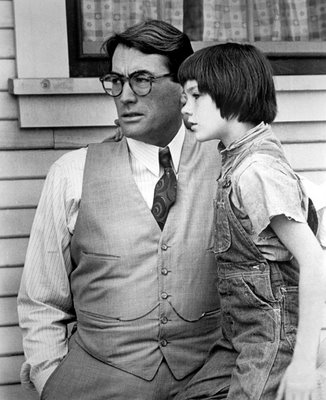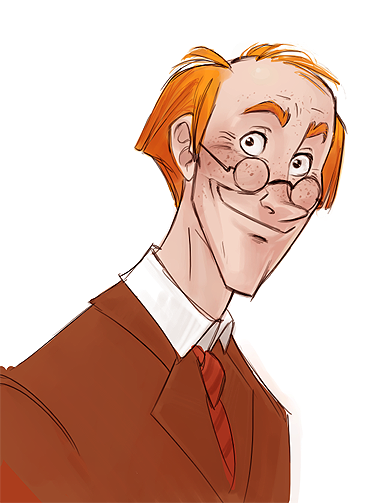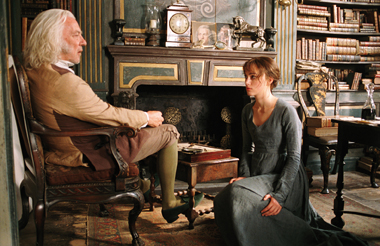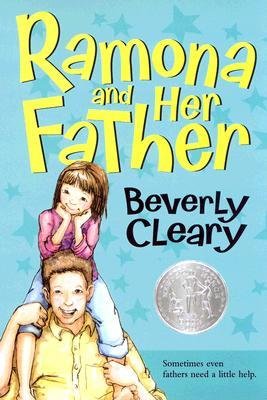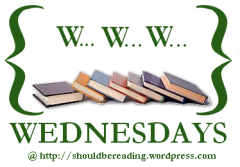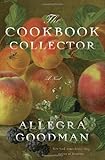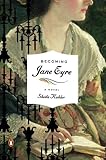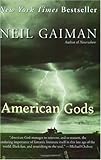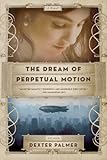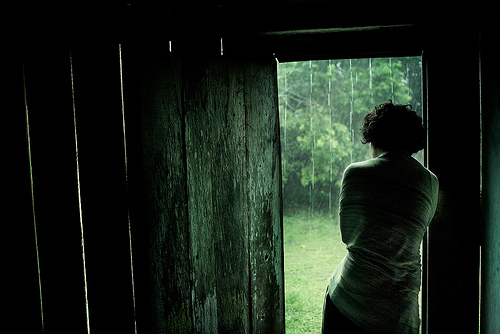 Historical fiction is my favorite genre, and I’m not sure I could pick an adequate top ten. There are so many great books that fit into this genre. You can find my list below with the following caveats: I simply haven’t had a chance to read a lot of great historical fiction that’s out there yet, so this list is necessarily limited to just those books I have experience with, and also I have decided not to include classics that were set during their own contemporary times but are history now (e.g. [amazon_link id=”0486284735″ target=”_blank” ]Pride and Prejudice[/amazon_link] or [amazon_link id=”1441408223″ target=”_blank” ]Jane Eyre[/amazon_link]). Also, these are in no particular order (aside from the order in which they occurred to me) because I couldn’t begin to rank them. Finally, I selected these particular books out of all the historical fiction I have read and loved because they so perfectly evoke their time settings that they bring the historical eras in which they are set alive (with historical accuracy) and simply couldn’t take place any other time.
Historical fiction is my favorite genre, and I’m not sure I could pick an adequate top ten. There are so many great books that fit into this genre. You can find my list below with the following caveats: I simply haven’t had a chance to read a lot of great historical fiction that’s out there yet, so this list is necessarily limited to just those books I have experience with, and also I have decided not to include classics that were set during their own contemporary times but are history now (e.g. [amazon_link id=”0486284735″ target=”_blank” ]Pride and Prejudice[/amazon_link] or [amazon_link id=”1441408223″ target=”_blank” ]Jane Eyre[/amazon_link]). Also, these are in no particular order (aside from the order in which they occurred to me) because I couldn’t begin to rank them. Finally, I selected these particular books out of all the historical fiction I have read and loved because they so perfectly evoke their time settings that they bring the historical eras in which they are set alive (with historical accuracy) and simply couldn’t take place any other time.
- [amazon_link id=”034549038X” target=”_blank” ]The Dante Club[/amazon_link] by Matthew Pearl: Not only is this book a solid thriller with fun connections to Dante’s [amazon_link id=”0812967216″ target=”_blank” ]Inferno[/amazon_link] and the Fireside Poets, but it is also a great snapshot into life in Boston right after the Civil War. In terms of period detail and engaging reads, you could do worse than Matthew Pearl for sure.
- [amazon_link id=”0780748433″ target=”_blank” ]Catherine, Called Birdy[/amazon_link] by Karen Cushman: This is a middle grades/early YA novel set in 1290 in England. Catherine is the daughter of a knight, and Cushman captures the Middle Ages (particularly, the lives of a family in a small manor house) in exquisite detail.
- [amazon_link id=”0152164502″ target=”_blank” ]The Coffin Quilt[/amazon_link] by Ann Rinaldi: The subject of this YA novel is the feud between the Hatfields and McCoys. Told from the viewpoint of Fanny McCoy, the novel touches on all the major events of the feud and is simply one of the most well-written YA novels I’ve ever read.
- [amazon_link id=”0345521307″ target=”_blank” ]The Paris Wife[/amazon_link] by Paula McLain: This novel about Ernest Hemingway’s first marriage and time in Paris perfectly captures the lives of the American artist expatriates living in France during the 1920’s. It’s a gorgeous novel.
- [amazon_link id=”1565125606″ target=”_blank” ]Water for Elephants[/amazon_link] by Sara Gruen: This isn’t just great historical fiction. It really captures an era and a subculture that I’ve not seen captured as well in any other novel. Superb read.
- [amazon_link id=”0765356155″ target=”_blank” ]Jonathan Strange & Mr. Norrell[/amazon_link] by Susanna Clarke: While also classified as fantasy, this novel also explores England during the Napoleonic Wars, including brushes with Mad King George and Lord Byron as well as the Duke of Wellington. The footnotes are a great touch. I loved this novel.
- [amazon_link id=”039331507X” target=”_blank” ]Nothing Like the Sun[/amazon_link] by Anthony Burgess: I don’t think I’ve read another historical fiction book about Shakespeare that touches this one. Burgess’s characters speak like Elizabethans, and the events described are both believable and fun homages to Shakespeare’s plays. The premise behind the book is that Shakespeare’s tangled love life majorly influenced all of his work.
- [amazon_link id=”B000FC10KC” target=”_blank” ]Ahab’s Wife[/amazon_link] by Sena Jeter Naslund: Oh, how I love Una Spenser. She is my fictional BFF. She is amazing. I need to read this one again. As you might have guessed, this book takes the passage in [amazon_link id=”B003GCTQ7M” target=”_blank” ]Moby Dick[/amazon_link] in which Captain Ahab mentions he has a young wife at home and creates her character and her life (and it’s a fascinating life that, in my opinion, puts that of her husband to shame).
- [amazon_link id=”0061577073″ target=”_blank” ]The Poisonwood Bible[/amazon_link] by Barbara Kingsolver: This novel about Christian missionaries in the Belgian Congo right as the country declares its independence from Belgium is a fascinating snapshot into the Congo of the 1960’s as well as the lives of Christian missionaries and also serves as an allegory for America’s own role in colonialism.
- [amazon_link id=”0061990477″ target=”_blank” ]The Thorn Birds[/amazon_link] by Colleen McCullough: When I read this novel, I couldn’t put it down. I haven’t read a lot of books set in Australia, but this novel seems to so perfectly capture the times and setting. Meggie is an engaging heroine, and who doesn’t love Father Ralph de Bricassart?
Because I read a ton of historical fiction, I need to include some honorable mentions:
- [amazon_link id=”0547550294″ target=”_blank” ]The Witch of Blackbird Pond[/amazon_link] by Elizabeth George Speare: This YA novel is set in Colonial Massachusetts and is a great vehicle for middle schoolers (or even their older siblings and parents) to learn about that time period in history. I can’t think of too many books that do as good a job with this era.
- [amazon_link id=”0312378025″ target=”_blank” ]The Tea Rose[/amazon_link] by Jennifer Donnelly: This book is a fun read, but has a few lapses in terms of credibility (at least for this reader). Set in Whitechapel as Jack the Ripper ravages London, this novel is the story of Fiona, daughter of one of the Ripper’s victims, who makes her way to New York and builds a tea empire from scratch.
- [amazon_link id=”B001NLKT2E” target=”_blank” ]The Commoner[/amazon_link] by John Burnham Schwartz: This story of a commoner’s marriage into the Japanese imperial family makes for a great read, too, though Schwartz takes some liberties to make his character’s ending happier than that of the real model for his heroine.
- [amazon_link id=”0060515139″ target=”_blank” ]A Plague of Doves[/amazon_link] by Louise Erdrich: Some of this novel is contemporary, which is one reason I didn’t include it above, but it is one of the finest novels I’ve read and concerns the repercussions of a murder and hate crime that sent ripples through a community for generations.
- [amazon_link id=”B003WUYROK” target=”_blank” ]The Physick Book of Deliverance Dane[/amazon_link] by Katherine Howe: Also partly set in contemporary times, this novel concerns Connie Goodwin’s attempts to learn more about her ancestors’ grimoire and secret powers.
- [amazon_link id=”0399157913″ target=”_blank” ]The Help[/amazon_link] by Kathryn Stockett: While this book certainly evoked Mississippi of the 1960’s, and I thoroughly enjoyed it, it did not seem as realistic to me as some of the books I included in my top ten.
- [amazon_link id=”0307588661″ target=”_blank” ]Madame Tussaud[/amazon_link] by Michelle Moran: This novel, set during the French Revolution, was an excellent read and shone a spotlight on a historical figure who hasn’t perhaps received as much attention as she was due.
- [amazon_link id=”0143034901″ target=”_blank” ]The Shadow of the Wind[/amazon_link] by Carlos Ruiz Zafón: Barcelona’s book world during the 1930’s and 1940’s, though to me, the plot did not have to be set during era or in that place.
- [amazon_link id=”0451202503″ target=”_blank” ]The Songcatcher[/amazon_link] by Sharyn McCrumb: Again, because this novel is set partly in contemporary times, I excluded it from the list above, but the historical fiction parts were my favorite. This novel is the story of how a song learned on the crossing from Scotland to America in the eighteenth century was passed down in a family and survived to the present day.
- [amazon_link id=”039306915X” target=”_blank” ]Emily’s Ghost[/amazon_link] by Denise Giardina: The story of Emily Brontë and one of the better historical fiction novels about the Brontë family.
- Pretty much anything by Jude Morgan. Love him. And Syrie James. And Tracy Chevalier. I mean, this was really a hard topic for me to narrow down.
